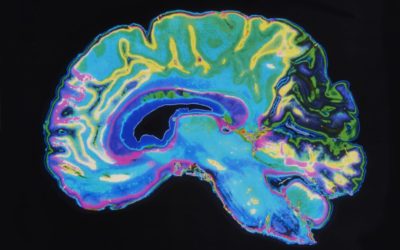Quick Hits
Daily brief research updates from the cognitive sciences

We may have some cliched ideas of older people like the grumpy or angry old man, or woman (but it is often a man).
However, research continually shows the opposite. Namely that people tend to mellow out with age. And another piece of research published in March this year also shows that older people respond better to distress. This is an interesting piece conducted by Sussanne Schweizer of the University of South Wales in Australia.
What did they do?
249 participants aged between 18 and 88 watched a series of clips with emotional content. This varied form positive such as babies giggling, to neutral such as a weather forecast, or negative, such as footage of the Rwandan genocide. They were asked to watch these and allow any emotional responses to arise naturally. However, they were then instructed to actively reframe 50% of the negative content clips and try to put this in a more positive light.
They then rated their emotional responses to each of the clips.
What did they find?
They found that older people were
-
- More positive to positive emotional stimuli
- More positive to neutral emotional stimuli
- Better able to manage negative emotional stimuli
These even though the so-called basal emotional state was rated as more negative (this is the grumpy old man syndrome!). The basal state is the general state. So older people seem to be slightly more negative “at rest”.
Subsequent brain scanning of some of the participants failed to find any fundamental differences in brain structure apart from decreased cortical thickness across all regions which we know is a natural part of the ageing process.
So, all in it shows that older people respond more positively to all emotional stimuli but importantly are better able to deal with distressing or negative stimuli.
Surprising? Maybe.
In summary, in negative situations it might be good to have an old person with you!

Andy Habermacher
Andy is author of leading brains Review, Neuroleadership, and multiple other books. He has been intensively involved in writing and research into neuroleadership and is considered one of Europe’s leading experts. He is also a well-known public speaker speaking on the brain and human behaviour.
Andy is also a masters athlete (middle distance running) and competes regularly at international competitions (and holds a few national records in his age category).
Reference
Stretton, J., Schweizer, S., & Dalgleish, T. (2022).
Age-Related Enhancements in Positive Emotionality across The Life Span: Structural Equation Modeling of Brain and Behavior.
The Journal of Neuroscience : The Official Journal of the Society for Neuroscience, 42(16).
https://doi.org/10.1523/JNEUROSCI.1453-21.2022
More Quick Hits
Why Too Much Talent May Harm Performance
This may sound like a strange thing to say – but talent and team coordination are different things…
How Nutrition Can Increase Motivation – In the Brain
Fascinating study on how antioxidants (and therefore also nutrition) in the brain can increase motivation…
Mindfulness Intervention as Effective as Drugs in Anxiety Disorders
An important study showing how mindfulness is as effective as medication – without the side effects…
New Insights into How the Teenage Brain Develops
Teenagers’ brains go through substantial changes – and now we know more of some of these…
Screen Time Boosts Wellbeing in Teenagers!
Screen time is considered a modern technological evil – maybe not so for teenagers…
Taking Photographs of Slides Improves Memory of Presentations
Taking pictures has been shown to reduce memory – but this study shows the opposite…






